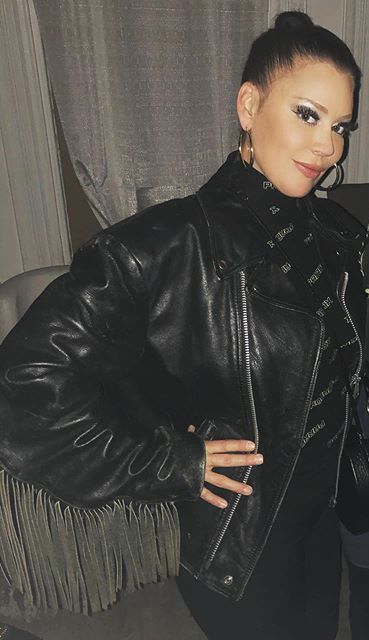#Amy Smith
Text
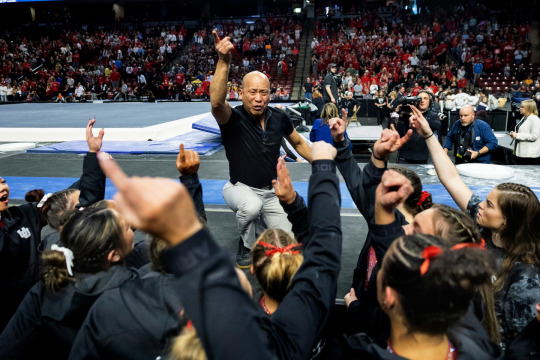
Beneath NCAA gymnastics’ glow, a familiar ‘toxic’ culture
Women’s college gymnastics looked like a joyous reprieve from their intense club programs. Then they showed up on campus.
By Molly Hensley-Clancy and Emily Giambalvo
After everything they went through as young gymnasts, college was supposed to be a safe haven.
The viral routines, the cheering crowds, the women swarming their teammates: NCAA gymnastics, at least as viewed from their Instagram feeds, was a world apart from the elite youth version of the sport, where injury, body-shaming and verbal abuse were expected.
Instead, they found the same toxicity.
At the University of North Carolina, gymnast Raine Gordon says, her assistant head coach, Amy Smith, pitted gymnasts against one another and made her feel ashamed of her body, once saying that Gordon’s leg was bruised after a fall because it was “fat.” Smith and the head coach, Derek Galvin, made Gordon sign a contract that threatened her scholarship if she didn’t lose weight every week. Bulimia, Gordon says, “became like a team activity.”
At LSU, one of the country’s top programs, Bailey Ferrer, a former elite gymnast, says the school’s longtime coach, D-D Breaux, praised her weight loss as she spiraled into an eating disorder, then retaliated when mental health treatment prevented Ferrer from training, once pushing her from a team huddle. Ferrer, devastated, was forced to cut her once-ascendant career short, she told The Washington Post.
And at Utah’s storied program, gymnasts this year reported verbal and emotional abuse by their coach, Tom Farden. His volatility and demeaning treatment, multiple gymnasts told investigators hired by the university, included hurling objects in fits of anger during training.
In September, the university announced it would not discipline Farden after its investigators found his conduct had not been “severe, pervasive or egregious” and after a majority of his current athletes defended him. But faced with the prospect of competing for Farden again, one of the program’s most prominent athletes, Kara Eaker, an alternate for the Tokyo Olympics in 2021, said in October she had been a “victim” of his mistreatment and was quitting the sport.
Farden’s treatment of her, she said in a statement, had triggered thoughts of suicide and self-harm. Another former athlete, Kim Tessen, also came forward to criticize the university’s investigation and say she had been mistreated by Farden.
“I want to stop the cycle of abuse and the men who threaten girls and women in all sports,” Eaker wrote.
Women’s college gymnastics has exploded in popularity in recent years, gaining television viewers, crowds and social media followers in droves. The NCAA championships last spring drew more than 1 million viewers on ESPN, its most ever, and in the era of athletes profiting from their brands, some gymnasts rank among the highest earners of any college sport, men or women.
But for some athletes, the reality of NCAA gymnastics has been sharply at odds with the sport’s public image, an examination by The Post found. In interviews and investigative records, gymnasts described “toxic” environments in which they were targeted by coaches, ignored by institutions and ostracized by teammates for speaking up. Coaches, a dozen gymnasts told The Post, created environments in which gymnasts felt unsafe and unsupported and where their mental health degraded. Some said they were even driven from the sport because of it.
Some allegations, like at Utah, have previously spilled into public view. At San Jose State, gymnasts told the Mercury News that their former coach had verbally abused and body-shamed them. The coach had been investigated in 2018, the newspaper reported, but denied the allegations and was allowed to retire with his pension and praise from the university. And at Penn State, one coach was fired and another resigned in the wake of 2016 allegations of emotional abuse and body-shaming from former gymnasts.
College gymnasts who have raised concerns in recent years about cultural issues in the sport said they hoped to join the chorus of women who spoke up about systemic sexual and emotional abuse at the elite youth clubs that fuel the powerhouse U.S. national program, including by Larry Nassar and Bela and Martha Karolyi. But change, they said, has yet to come.
In the wake of Nassar’s abuses, Congress created an oversight organization, the U.S. Center for SafeSport, to police abuse in the Olympic movement. But SafeSport does not have jurisdiction over college sports. The NCAA, meanwhile, largely gives colleges discretion over whether and how to respond to allegations of emotional abuse.
Smith, the North Carolina assistant, is now the head coach at Clemson. She did not respond to a detailed list of questions from The Post, issuing a statement saying only that “student-athlete wellbeing is incredibly important, and I am confident in our ability to provide those resources at Clemson.” UNC declined to comment.
Galvin, North Carolina’s former head coach, said he was “ashamed of myself” for asking Gordon to sign the weight loss contract, which he said he retracted shortly after presenting it on advice of the administration. “I let Raine down,” Galvin said.
Breaux did not respond to requests for comment. She retired as head coach in 2020 after 43 seasons but remains a part of the university’s athletic department. In a statement, an LSU spokesperson said the university had spoken with Breaux and Ferrer about the incident at the meet and worked to resolve it.
Investigators hired by Utah found that the majority of current athletes in the program had positive experiences with Farden and said they couldn’t corroborate many of the allegations. Incidents they had corroborated, where he made a derogatory comment or thrown an object in anger, the investigators said, were “isolated” and had not violated university codes.
Farden’s attorney, Brian C. Johnson, told The Post that his client would “likely take appropriate legal action” against Eaker and Tessen, saying their public statements on social media in the wake of the school’s decision were “false statements of fact.”
Asked whether Farden planned to change his coaching methods, Johnson said he did not. “He has a long history of success as a coach,” he said. “He’ll continue to do so in the fashion he’s done so.”
Shortly after a Post reporter asked a Utah spokesperson about the attorney’s comments, the university placed Farden on administrative leave, citing conduct “not related to student-athlete welfare.”
Crude awakening
After being screamed at, humiliated, body-shamed, overtrained or even — once — bitten by coaches as young girls, many gymnasts who spoke to The Post said they came to NCAA gymnastics with hope not just for something different. They hoped, they said, for something that would make the painful experiences of their early years feel worthwhile.
Some of the NCAA’s 1,200 Division I female gymnastsno doubt found that. In the wake of revelations about systemic abuse by Nassar and emotional abuse by some of the country’s most high-profile club gymnastics coaches, Katelyn Ohashi’s ebullient 2019 routines at UCLA went viral — along with her story of finding “joy” again in college gymnastics after body-shaming in the elite youth ranks almost drove her from the sport.
But others have had starkly different experiences.
Gordon arrived at UNC in 2016, hoping college would be a respite from the negative pressures of club gymnastics. Instead, she encountered Smith, then the assistant head coach, who she said singled her out from the earliest days of her freshman year, berating her for mistakes and comparing her negatively with her teammates.
When Gordon fell short on a high-stakes skills verification test, she said, Smith forced Gordon to compare herself one-by-one with each of the team’s walk-ons, asking Gordon if she felt she “deserved” a scholarship more than them.
“It genuinely felt like no matter what I did, I was doing something wrong,” Gordon said. “I felt like they were just waiting for me to mess up.”
Galvin, the head coach at the time, described Smith as “intense” in an interview with The Post. “She brings an intensity that some student-athletes thrive under and some don’t, and she can be very — she can be very honest. Another coaching style is to be more diplomatic, maybe, is the word,” he said. “There were times where I felt like the intensity in the gym was too much, and we backed off on it.”
Smith left North Carolina for Utah State in 2017. Soon after she took over that program, athletes began to flee: Ten gymnasts left in 2019, roster records maintained by the website College Gym News show, nearly half of the team. Another seven left in 2021. Three gymnasts told The Post they left Utah State’s program in part because of Smith’s coaching, and a fourth said so publicly. Others did not respond to requests for comment.
“I was told every day I wasn’t good enough,” former Utah State gymnast Morgan Gill said in an interview, describing how Smith held her to “impossible” standards such as requiring her to perform her routines for two weeks without a single fall. Gill said she eventually developed anxiety and chest pain so intense that she was prescribed an inhaler by a Utah State doctor. But even that provoked Smith’s anger, she said.
“You never knew what would set her off, but for me, the thing that made her overwhelmingly angry — to the extent of yelling at me in front of the whole team — was my inhaler,” Gill said. When she forgot to use her inhaler before practice and instead had to step out of a conditioning circuit to use it, Gill said, Smith yelled at her for “playing games” and “failing to fully comprehend what was expected” of her.
Internally, multiple athletes raised concerns about her coaching to the university, according to three former gymnasts and emails to administrators reviewed by The Post.
“It felt like countless times that we went to the administration with anonymous complaints and issues” with Smith’s coaching, said a former Utah State athlete, Tori Loomis, who said she felt she had been “targeted” by Smith.
Glory Yoakum, another former Utah State gymnast, posted on social media in 2021 that Smith had “degraded” her and threatened her scholarship, telling her she was a “weak link” and “didn’t want to work.” But Utah State never conducted an investigation of Smith, the university said.
In a statement, a spokesperson for the Utah State athletic department said the school regularly reviews anonymous complaints from athletes and discusses them with coaches. Smith was reviewed annually, the statement said, and “was in good standing at the end of her employment.”
Five of Smith’s athletes followed her to Clemson, which Utah State cited in its statement as an endorsement of her coaching. Clemson declined to make them available, and they did not respond to messages seeking comment.
Smith’s hiring, however, also prompted Gordon and two other Utah State athletes to speak up publicly, echoing the experiences that Yoakum had written about a year earlier.
They didn’t expect her to be fired, the athletes said. But they wanted a statement from Clemson that it would more closely monitor her program and an acknowledgment from the institutions that they said had failed to protect them. From Smith, some said, they hoped for something simple: an apology and a promise to do better.
The complaints reached the highest levels of Clemson’s athletic department, according to emails sent to and among administrators at the school. But publicly, the gymnasts’ stories were met with silence.
In a statement, a spokesperson for Clemson said the university’s hiring process included an “extensive amount of research into Coach Smith’s background,” during which Clemson “was not made aware of formal or informal investigations of Coach Smith from her previous institutions.”
“We take student-athlete treatment seriously and have confidence in Amy’s commitment to her student-athletes, as we’ve seen firsthand during her time at Clemson,” the university said.
Gill, for one, was unconvinced.
“It felt like everything we had gone through meant nothing to the people in charge, whether that was people from USU, people from Clemson,” Gill said. “We’d all spoken up and tried so hard to make things right, not necessarily to end her career but to have some kind of accountability.
“I’m just worried for the athletes that would go on to compete under her. I’m scared for them because I don’t want anyone else to experience that.”
Speaking out
From the outside, Kara Eaker and Kim Tessen were among Utah’s brightest stars. Tessen earned all-American honors in two events during her senior season of 2020; Eaker won two gold medals at the world championships with the U.S. team and was an alternate for the Tokyo Olympics. Utah is one of the country’s most legendary programs, with 10 national championships.
But under Farden, both women experienced emotional and verbal abuse, they said in public statements in October, and struggled with a “toxic” team environment that they said was created and fostered by Farden. For Eaker, the coach’s bouts of anger and “verbal attacks” felt like “a knife ... stabbed so deep in my body that there’s no way to pull it out.”
“When a male coach suddenly erupts with anger and physically slams down mats and gets up in an athlete’s face as a tactic to intimidate them, it’s impossible to have the confidence to speak up for yourself,” Eaker wrote in her statement. She sought treatment for thoughts of suicide and self-harm because of Farden’s coaching, she wrote.
Long before she went public, Eaker said in the statement, she went to the university to raise alarms about Farden’s mistreatment. This summer, in the wake of high-profile transfers by three gymnasts, the university hired law firm Husch Blackwell to investigate Farden. But the firm’s investigators found a sharp division.
Some former gymnasts described a coach who terrified them: volatile and demeaning, targeting them with regular outbursts that they said took a toll on their self-esteem and self-worth, according to investigative records and interviews with former gymnasts and their parents. Two former Utah gymnasts were hospitalized with suicidal ideations in part because of his coaching, their parents told The Post, allegations that were first reported by the Deseret News.
But “two thirds” of the current team, investigators said, described Farden’s behavior differently: He was a “caring, passionate” coach with whom they “did not report any concerns related to the treatment of student-athletes.” He had occasionally yelled at the team, some gymnasts acknowledged, but had not targeted individuals and rarely if ever crossed a line. No athletes are named in the investigation.
Some of Farden’s former gymnasts defended him to the Deseret News. Two former Utah coaches, Megan and Greg Marsden, attributed the allegations against Farden to “disgruntled” former gymnasts, the paper reported.
“He cares so much about his athletes. But he also has a fine line to toe with, you know, being a professional and delivering results while still caring. I think that he toes that line very well,” Sydney Soloski, who was on the team until last year, told the newspaper.
Investigators corroborated one “degrading” comment by Farden, in which he told a student that she would be a “nobody working at a gas station in her hometown” if she were not at the university. Andinvestigators found two allegations that Farden had thrown objects — a cellphone and a stopwatch — were “more likely than not” true. Farden denied throwing any object.
In another allegation, a gymnast told investigators she was cleaning the uneven bars when Farden “grabbed” the scraper from her and threw it at her. Three teammates who witnessed the incident told investigators that they, too, had seen Farden throw the scraper — a toilet brush attached to a wooden stick — and that it hit their teammate. One said she thought Farden acted “out of stress” because her teammate had been taking too long to scrape the bar; another said she thought he was in “panic mode.”
But the woman’s teammates also told investigators they believed Farden had been well-intentioned and, as one put it, “did not throw it to hurt the student-athlete.” Another said Farden had “chucked the scraper into oblivion” and that the athlete was “in the wrong place at the wrong time.”
The investigators eventually determined Farden had not violated any policies in the incident, citing “varying and inconsistent statements.”
The university placed Farden on a performance improvement plan following the investigation, and the school’s athletic director, Mark Harlan, said in a statement at the time that he had met with Farden to “share with him my expectations moving forward.” But he said he “remain[ed] confident in Coach Farden’s ability to continue to lead our gymnastics program.”
The division among teammates was a dynamic not isolated to Utah, multiple gymnasts told The Post. Among the things they had looked forward to the most in college gymnastics, they said, was the chance to compete as part of a team. But it was common practice in their programs, many gymnasts said, for coaches to pit athletes against each other anyway, even blaming some for team struggles.
It was a dynamic that resulted in isolation and sometimes escalated to bullying — and made it even more difficult for gymnasts to recognize and speak up against their coach’s mistreatment, they said.
Tessen and Eaker described that dynamic from their time at Utah.
“I quickly learned that the whole culture at the U of U gymnastics team was one of comparison: of each other’s skill levels, each others’ bodies, each others’ academic abilities,” she wrote in her statement. “These are clear, intentional intimidation tactics used to exert control and dominance over us.”
Some gymnasts “embraced” the dynamic created by Farden, Tessen wrote. “Those who reject it are the ones who suffer most from Tom, and even the other athletes.”
Johnson, Farden’s attorney, called Tessen’s statements “false.” In the investigation, a majority of current team members and staffers “denied observing Coach Farden target particular student-athletes with negative treatment,” investigators wrote, and there was not “sufficient evidence” to establish that he had singled out athletes.
Investigators only considered conversations that could be corroborated by outside sources, they said, and relied on Farden’s denials of what had happened. In her statement, Eaker alleged Farden’s emotional abuse had often taken place in one-on-one meetings, without anyone else present.
A university spokesperson told The Post that it stood by the findings of Husch Blackwell’s investigation.
Pushed aside
Bailey Ferrer calls it the moment the “switch flipped.” As an elite gymnast, she grew up with club coaches who screamed and punished her with rope climbs for tiny mistakes, she said. But when Ferrer reached puberty, her coach filmed one of her bar routines, then paused the video as she was watching it, she said, and pointed to her body. “You’re getting too big here and here,” she said he told her. (Her former club coach said the incident “never happened.”)
Within weeks of arriving at LSU in 2019, Ferrer said, she found a culture that seemed just as obsessed with weight as elite gymnastics. “They care about our tan, our makeup, our everything,” she said. “That’s why we’re all over social media.”
LSU is one of the country’s best teams, often finishing in the top four nationwide, but it has also risen to prominence because of the online prowess of its gymnasts: Olivia Dunne, a senior, has more than 4 million followers on Instagram, making her one of the highest-valued athletes in all of college sports.
Ferrer was successful in her first year at LSU, earning a regular spot in the bars lineup, but the program’s handling of weight began to erode at her already fragile body image.
The coach at the time, D-D Breaux, had a practice of weighing in athletes on random Wednesdays, Ferrer said, rituals that were conducted in a room with the entire team present. Ferrer became anxious about the weigh-ins, she said, because Breaux and other LSU staffers sent a clear message that any amount of weight gain was unacceptable.
When, as a freshman, the scale showed she had gained three pounds, Ferrer said she was pulled into the team nutritionist’s office for an extra body-fat scan and told her body mass index was too high. “We need to dial in on nutrition,” she said the nutritionist told her. (The nutritionist did not respond to a message seeking comment.)
To Ferrer, it made no sense: “It was halfway through the season, and I was doing the best gymnastics of my life,” she said. But she began to skip dinner on Tuesdays, anticipating she might be weighed again.
“I felt nervous because I knew whatever the number on the scale was going to be, it was going to determine my mental state for that day at least,” she said.
LSU said in a statement that across all of its sports, “weight and other health-related factors are managed with the student athlete’s performance team, which includes strength and conditioning staff, nutritionists, registered dietitians, sports medicine practitioners, and other medical professionals.”
Over the summer, while healing from ankle surgery, Ferrer said she began to restrict her eating even more severely in anticipation of returning to LSU and to weigh-ins. When she returned for sophomore year, Breaux noticed. Breaux “came over to me and said, ‘You look really good; keep doing what you’re doing,’ ” Ferrer said. “That’s when the unhealthy habits really ramped up.”
Ferrer eventually sought help for her eating disorder from a team trainer, she said, and was put into a treatment program that “saved her life,” she said. But Breaux was upset that Ferrer was not able to train, Ferrer said.
When the season started, Ferrer arrived in the locker room to find her locker was empty, without any of the gear her teammates’ were filled with. Breaux was “holding them back,” Ferrer said she was told by a staffer. Her teammates rarely spoke to her, she said, and she was not allowed to dress or be on the floor for LSU’s home meets.
Ferrer’s medical files at the time, portions of which were provided to The Post by Ferrer’s parents, record that Ferrer was “not given … apparel.” The records show Ferrer was initially excluded from meets partly on the recommendation of doctors, who wanted her to focus on her treatment. But when doctors said Ferrer could return to the floor, Breaux was resistant, the documents show.
Breaux told a trainer “it was a privilege not a right for someone to be on the floor during a competition,” the trainer’s notes show.
When Ferrer was finally told she could “dress out” for LSU’s meet against Alabama, she said, she was “so excited. I was excluded from the team, and I just wanted to feel like I was a part of it again.” Instead, the meet ended up being the last time Ferrer put on an LSU leotard.
As the team was going into the huddle before one of its events, Ferrer tried to join, she said. But Breaux put her hand on Ferrer’s shoulder and pushed her out of the huddle. Later, when the team was posing for a photograph with alumni who had attended the meet, she said Breaux told her not to get in the photo. Ferrer remembers her words, she said: “I’m done with you.”
Several of Ferrer’s teammates did not return messages seeking comment. But her teammates did tell the team trainer what happened, according to Ferrer’s medical records. “D-D told everyone to come on but pointed at Bailey and said not her,” the trainer wrote.
LSU told The Post it had addressed the incident with Breaux and Ferrer but declined to provide specifics. LSU said Breaux’s departure from her coaching role in 2020 was unrelated.
Ferrer entered the transfer portal and committed to Auburn, another gymnastics powerhouse. But days before she was set to leave — her apartment in Auburn, Ala., already rented, a photograph taken of her with Auburn gear — an Auburn doctor who reviewed her medical records would not clear her transfer. She felt forced to medically retire, Ferrer said, and spent her last two years at LSU without gymnastics.
Eating disorders are common for many young women, especially college athletes. But studies consistently find female gymnasts are at a staggeringly high risk, with a 2004 study finding 42 percent of gymnasts and other elite “aesthetic sport” athletes, such as figure skaters, had disordered eating habits, compared with 16 percent in sports like soccer or basketball.
Several gymnasts told The Post that rather than taking proactive steps to prevent eating disorders, coaches exacerbated or even created them, stoking disordered habits and adopting practices that put weight at the forefront. Asking for help, gymnasts said, could result in ostracism and bullying from coaches — or even end their careers.
As a freshman at Utah State, Tori Loomis said she became one of Amy Smith’s “very clear targets.” Particularly painful, Loomis said, was a moment a year later when, in front of the team, Smith pulled her name off a whiteboard on which she ranked gymnasts and flung it to the floor.
When she asked a group of upperclassmen how to make Smith treat her better, Loomis said, she would never forget their answer. They told her Smith “would love you if you were anorexic.” Loomis is one of three athletes who said they believed Smith had fostered a culture of disordered eating on the team.
The upperclassmen’s comments lingered in the back of Loomis’s mind as Smith frequently told her she was “out of shape,” even when she was injured. She developed a severe eating disorder, she said. “I felt like I have this scholarship looming over my head, and if these upperclassmen are telling me to do this, then this is what I need to do.”
The experience Loomis described was similar, in some ways, to the one Gordon alleged four years earlier at UNC. After a hard fall on the beam, Gordon said, a bruise on her leg worsened until it boomed dark purple and black across most of her hamstring, according to a photo she provided. According to Gordon, Smith told her, “It looks bad because your leg is fat.”
A few moments later, Gordon remembers Smith asking her, “When you look in the mirror at your body, do you like what you see?” She said she felt like there was only one answer: No.
Later, after Gordon was suspended from the team for drinking during her freshman year in 2017, she said, the head coach, Galvin, and Smith gave her an opportunity to “right her wrongs” in the form of a contract, according to a copy reviewed by The Post. But the contract did not mention drinking at all.
Instead, it required “healthy weight loss of 1-2 lbs a week.” Gordon had to agree to weekly weigh-ins and six days a week of “intense cardio.” Failure to reach those goals, the contract said, “will result in a re-evaluation of my status as a scholarship student-athlete at the University of North Carolina and may lead to my dismissal from the gymnastics team and non-renewal of my athletic grant-in-aid.”
When Galvin and Smith presented her with the contract, Gordon said, she instantly thought back to Smith’s comment about her leg. She had struggled with body image issues since her time in club gymnastics when, she said, she and her teammates had been told to run a mile for every piece of Halloween candy they ate and were forbidden from drinking water before meets.
Smith’s words were the “acknowledgment” she needed that something was wrong with her body — and the contract, Gordon said, provided a road map to “a full-blown eating disorder.” She took it.
Smith left UNC at the end of the season. But for Gordon, the scars remained, she said.
“You can’t tell a freshly 18-year-old girl that her entire scholarship and athletic career rests on her weight and not expect her to develop some sort of issue,” Gordon said. By her sophomore year, she said, “I was walking around campus as a zombie. I was so dissociated the whole time. I just had no nutrients in my body.”
Galvin said he took full responsibility for giving Gordon the contract, which he called a “mistake.” He said he had “never considered [the document] a contract” and that after administrators told him it was not enforceable, he retracted it.
“I wish I had managed Raine’s student-athlete experience differently than I did,” he said. “If I could go back now to five minutes before she’s going to walk into my office, knowing what I know now, I would never have put that piece of paper on the desk.”
Gordon said she remembered Galvin revising the contract but believed she had been given a different version that still required her to lose weight, removing only a requirement to photograph her meals and send them to the team nutritionist.
UNC declined to comment. Smith did not respond to detailed questions about Gordon or any other athletes’ allegations.
To Ferrer, it is impossible to think about her experiences in NCAA gymnastics without also thinking about her childhood in elite gymnastics, too. She is working now as an orthodontist’s assistant, and she was struck recently, she said, by a conversation with a high school freshman — around the same age Ferrer was when she committed to LSU.
Sitting in the orthodontist’s chair, the girl said, she described everything she had going on in her young life: honors classes, debate, dance lessons, dreams of being a doctor or a teacher.
At that moment, Ferrer said, she thought, “I was robbed of a childhood.” And she has realized, she said, that she was “robbed” of a college experience, too. Looking back, she said, she regretted the program she chose.
“All I can think was, ‘Is this worth it?’ A part of me says yes — I do have a college education and no debt. But part of me thinks that experience was ruined,” Ferrer said. “If I could go back as that little girl in eighth grade, I think my decision might have been different.”
#it won't let me post a link like normal for some reason sorry#this whole thing is heartbreaking to read but bailey's quote at the end really got me :(#abuse cw#ed cw#ncaa#amy smith#tom farden#dd breaux#derek galvin#glory yoakum#morgan gill#raine gordon#kara eaker#kim tessen#bailey ferrer
40 notes
·
View notes
Text
So…I Have A New OC x Canon Wild Kratts Ship I’d Like To Introduce…


Gaston Gourmand and Amy Rain Smith (AKA: Violet’s Aunt!)
They are the sassy southern chef duo who meet when they serve as the joint caterers for Zach and Violet’s wedding. Despite their attempts to kill each other in the process of making the meal, they get past their differences, make a fantastic meal, and eventually fall in love 😍!
The relationship with Amy helps to curb Gourmand’s obsession with cooking rare and endangered animals. He instead focuses on making meals with Amy that contain the finest and most exotic ingredients (spices, vegetables, and so on, but NOT endangered animals), and lots of heart!
A quote from them that I must share:
Gourmand: “Do you ever think about me being your nephew-in-law’s ex boyfriend?”
Amy: “I try not too…”
Gourmand: “Or that Little Sugar and I have…” (Little Sugar is Gourmand’s nickname for Violet).
Amy: “I don’t know what you’re gonna say, but don’t you dare finish that sentence…”
Picrew Used for Amy’s Image
Feel free to ask anything about them, I absolutely love this ship!
#wild kratts#wild kratts ships#gaston gourmand#amy smith#wild kratts oc#wild violet au#canon x oc#zach varmitech#violet varmitech#ziolet#love zach varmitech#wild kratts fanfic#gourmy#that’s their ship name#and it’s Varina’s nickname for gourmand lol#they are just two love struck sassy southern chefs#the zach and violet thing makes their relationship awkward at times 😅#gourmand is bi and so is zach because i say so haha#just my opinion though!
19 notes
·
View notes
Photo

Queen of Flytraps. Art by Amy Smith, from The Alleyway Tarot.
22 notes
·
View notes
Text
Kids in the Hall: Brain Candy (1996)
In today's review, I find that laughter may indeed be the best medicine. As I attempt a #positive review of the 1996 film debut of The Kids In The Hall: Brain Candy
#DaveFoley
#BruceMcCulloch
#KevinMcDonald
#MarkMcKinney
#ScottThompson
#BrendanFraser
Filling the gaps between Monty Python’s Flying Circus and The Whitest Kids U Know, The Kids in the Hall were/are a phenomenal comedy troupe from Toronto, spell-bounding audiences with their absurdist streak, and endearingly quotable sketches. In 1996, almost two years after the hit sketch show was dead and buried (literally), the few remaining members took to expanding their horizons with an…

View On WordPress
#1996#Amy Smith#Brendan Fraser#Bruce McCulloch#Christopher Redman#comedy#Dave Foley#film#films#Janeane Garofalo#Kathryn Greenwood#Kevin McDonald#Krista Bridges#Lachlan Murdoch#Mark McKinney#Movies#Nicole de Boer#positive#review#Scott Thompson
3 notes
·
View notes
Text

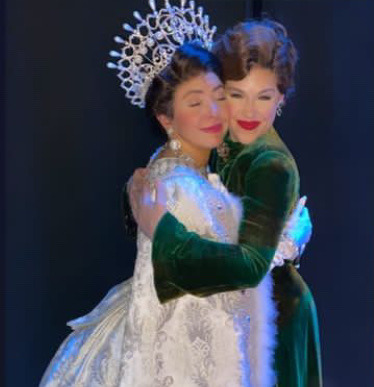



Amy Smith and Rebecca Hartman
5 notes
·
View notes
Text
RIOC Whistleblowers' New Legal Challenge Caused Board's Executive Session
The coalition of RIOC Whistleblowers – Erica Spencer-EL, Amy Smith and Jessica Cerone – at least in part, caused the board’s executive session last week. They filed their stinging response to a motion to dismiss the next day. It was a revelation.
by David Stone
The Roosevelt Island Daily News
A chilling statement in the whistleblowers’ lawsuit against RIOC and its executives – President/CEO…

View On WordPress
0 notes
Text

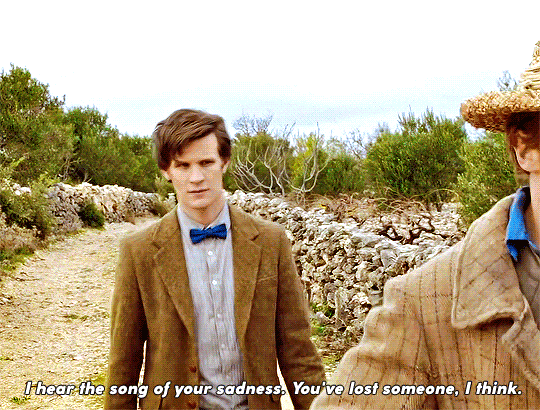




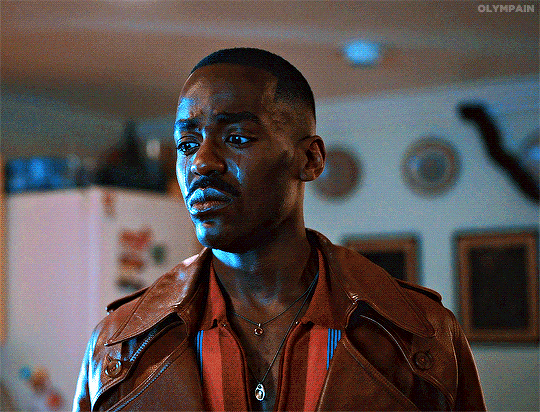

Why are you crying?
#dwedit#timelordgifs#dwgif#doctor who#dw spoilers#ncuti gatwa#fifteenth doctor#matt smith#eleventh doctor#karen gillan#amy pond#michelle greenidge#carla sunday#tony curran#original#*gifs
3K notes
·
View notes
Link
Yet another Amy Smith abuse story from a former Utah State gymnast (just an fyi that things got shifted out of order when she posted, start with the last photo then go back to the first)... and this is from 2019/2020, not at all long ago
15 notes
·
View notes
Text
"Omg, this companion hasn’t been on the show in years, move on."
Like the whole show isn’t about a sad little idiot who doesn’t know how to move on.
#if the doctor isn’t moving on then neither am I#doctor who#rose tyler#sarah jane smith#timepetals#martha jones#donna noble#rory williams#amy pond#river song#clara oswald#bill potts#ninth doctor#tenth doctor#eleventh doctor#twelfth doctor#thirteenth doctor#fourteenth doctor#fifteenth doctor
3K notes
·
View notes
Text
Intro Post To A Wild Kratts OC / OC Ship!
Todd Nathaniel King and Paige Summer Smith-King

Todd is Koki’s first cousin! Paige is my OC / s/i Violet’s first cousin and my OC Amy’s daughter!
Image made with this character creator!
Paige, Todd, Violet, and their extended families were life long friends prior to Todd and Paige’s marriage. Todd had a crush on Paige for most of his life, but she always rejected his advances because for many years she only viewed him as a friend, and because of the trauma she went through after her father abandoned her: she didn’t want a serious relationship or someone who really loved her because she felt like they would just abandon her too.
This led Paige down a very dark path where she flirted, dated, and hooked up with anyone she fell for (fun fact: she is Pansexual), and where she partied and experimented with drugs and alcohol. Todd helped her to realize the danger of the path she was on and professed his undying love for her, which led to them getting together, dating, getting engaged, and marrying shortly thereafter.
They are parents to one son, Nathaniel Alden King, born shortly after their marriage. I feel like they have twin daughters or fraternal twins (a boy and a girl) at some point, maybe around the time Zach and Violet have Vera or their twin boys, Victor and Vallen.

Image made with this picrew.
Feel free to ask any questions about Todd/Paige or Nathaniel! I’ll be posting more info on them soon!
Yes, I’ve literally created an entire family for Violet, don’t judge me, lol.
#wild kratts#wild kratts au#wild kratts oc#paige smith#todd king#nathaniel king#wild kratts ships#wild violet au#ziolet#violet varmitech#zach varmitech#amy smith#love zach varmitech#wild kratts fanfic#tw drug mention#tw alcohol mention#tw drug use#taige#that’s their ship name I suppose
6 notes
·
View notes
Text
Spotlight on Author Amy Smith
Today, Amy speaks to us about trust, feminine genuis and Jane Austen’s prayers. There is also a special Easter recipe included!
Inspiring biblical passage of the moment: It’s always Jeremiah 29:11 because of its hope-filled promise: “For surely I know the plans I have for you, says the Lord, plans for your welfare and not for harm, to give you a future with hope.”
Spiritual growth focus at the…

View On WordPress
#Amy Smith#author#book#Christianity#faith#inspiration#journalism#life#lifestyle#personal#relationships#The Plans God Has for You#truth#writing
1 note
·
View note
Text
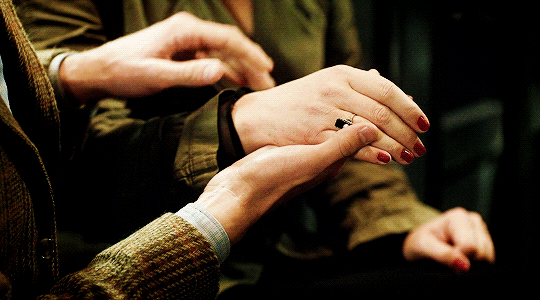





#mine#doctor who#dwedit#matt smith#david tennant#peter capaldi#alex kingston#jenna louise coleman#catherine tate#dw spoilers#ok i thought about waiting until saturday to make this#so that i could have a better quality one of fourteen and donna#but i couldn't do it!!!!!#the context for all of these kisses on the hand are so different i love it#but clara definitely got her fair share of them lol#also thought about including eleven and amy's forehead kisses but.... idk#anyways i'm very excited for saturday ahhhhh
3K notes
·
View notes
Text

Swings of Anastasia
2 notes
·
View notes



